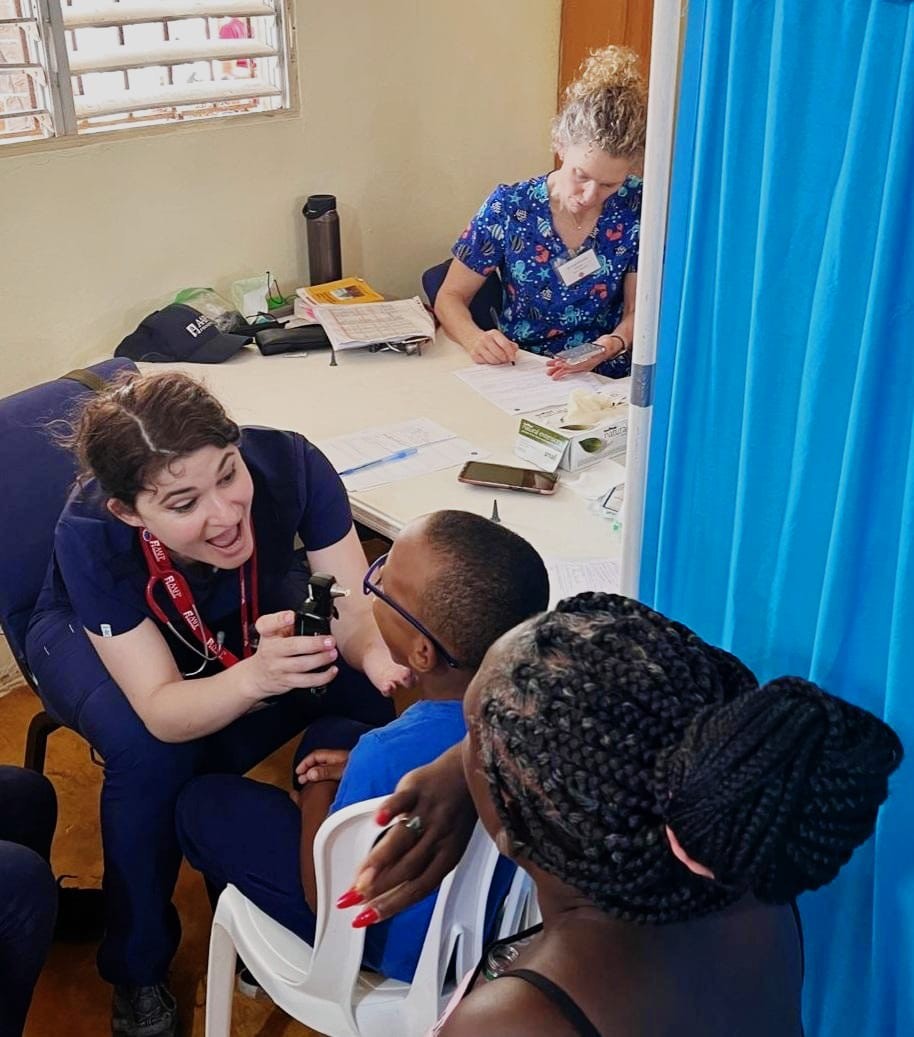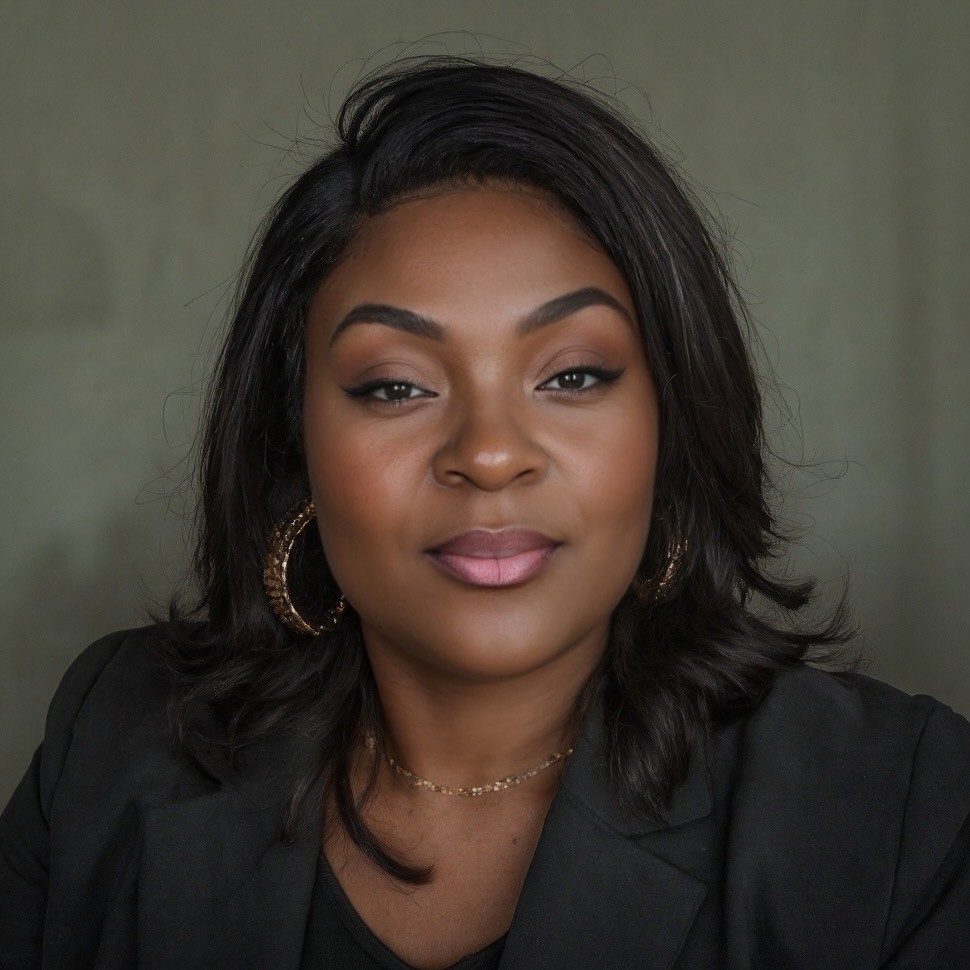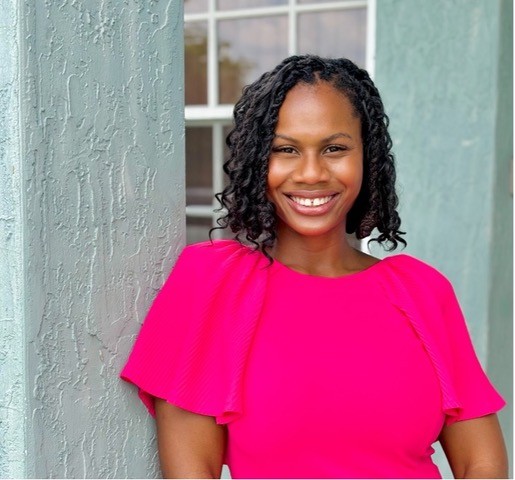Family Medicine Cares trip
‘truly transformative’
June 5, 2025, David Mitchell — The AAFP Foundation is recruiting family physicians through Aug. 31 for its 2026 Family Medicine Cares International trip to the Dominican Republic. During the trip, which is Feb. 7–14, the delegation will provide clinical care as well as medical education. A scholarship is available for one second- or third-year family medicine resident.
AAFP News recently talked with two members of the Foundation’s 2025 delegation about their experiences.
What did you get out of the Family Medicine Cares International trip, and why would you encourage others to go?
Shaneen Whyte, MD, second-year family medicine resident at Broward Health in Ft. Lauderdale, Florida: The experience was truly transformative. I had to step outside my comfort zone as a resident, immerse myself in a new culture, and be of service in a meaningful way.
Thanks to the generosity of the AAFP Foundation, I was able to participate through their resident scholarship. As someone who has benefited from the support of others throughout my journey, this felt like a pay-it-forward moment.
We’re often encouraged to network during residency, and this was a perfect chance to do that. I connected with other residents and family physicians from across the USA and local to D.R. It reminded me that family medicine isn’t just a national specialty—it’s a global effort.
For anyone looking to grow through medical education, collaboration, and service, this is a great opportunity. After I finish residency, I plan to go again as an early career physician.

Lubna Nasr El Nimer, MD, treats patients in the Dominican Republic as part of the AAFP Foundation’s Family Medicine Cares International program.
Pierrette Larisse Tantchou-Kamwa, MD, Family Physician at QuadMed Dow Family Health Center in Lake Jackson, Texas: It is a one-of-a-kind experience, especially for a primary care doctor. I trained in a rural family medicine residency, but it had been a while since I was in an environment where I got to do everything. There was a day when I worked as a medical assistant, checking patients in. There were days I worked in the pharmacy, helping sort out medications, which was a unique experience. Part of one day I work in the lab as a technician, which I don’t normally get to do in my daily life as a doctor in in the U.S., so that was interesting. One day we did eye exams to help people with vision issues. It wasn’t just, “Hey, you you’re a doctor and you’re here to provide medical services.” It was about really understanding the whole process. I’ll be going again next year.
What kind of care did you provide while you in the Family Medicine Cares International program?
Whyte: We offered various primary care services, including addressing acute complaints, preventive care, and chronic disease management. We even completed eye exams, and prescribed eyeglasses.
I also had the opportunity to go on a home visit for persons who couldn’t come to the clinic. We went to meet them, and we were welcomed in their space. As family physicians, we talk about things in the social environment that affect patients’ health. It’s one thing to hear about our patient’s challenges in clinic—but sitting in a patient’s home, I could see firsthand how their environment shapes their health. Experiencing that, even briefly, made the impact undeniable. It reminded me that the heart of family medicine is connecting with patients and building trust. I’m grateful to the delegations before mine who helped build that trust, and thankful I could continue that work.
We participated in an educational exchange with medical students and family medicine residents at a local university, where we discussed clinical cases together, which was insightful. Also, we visited a place that provides housing and schooling to children who come from vulnerable environments—not for patient care, but to better understand the community’s support systems.
I really appreciated that each day concluded with a group debrief, where we reflected on our experiences and reinforced the importance of collaboration. We weren’t there to change how things are done, but to collaborate and learn alongside local physicians. We also attended several sessions on global health. These discussions were fundamental in making sure that our intentions stayed true to the purpose of this delegation and this project, which is ongoing.
Why are family physicians well suited for this work where you might have fewer resources and the need for broad training?
Whyte: I chose family medicine because we’re uniquely equipped to address the whole person and the whole family. We are essentially community doctors. We are able to address those social determinants of health, and we are equipped to be adaptable to changes in level of resources and build relationships over time.
Tantchou-Kamwa: Primary care is really the best for an experience like this because the patient comes to you with many questions, and we’re able to gather all the information and decipher their immediate needs. People in that area really have very basic needs. Moms wanted to know what type of foods their children needed to eat because they were malnourished. There were people with chronic back pain, and we gave them Tylenol and explained how to use it. There was lady with cardiovascular disease who had had a surgical intervention on her heart, but she needed more in-depth help. We educated her about nutrition for patients with her condition and about why she needed to take her anticoagulants. We also were able to connect her with a cardiologist.

Pierrette Larisse Tantchou-Kamwa, MD
For a trip like this work with Family Medicine Cares International, is it necessary to be bilingual?
Whyte: It is helpful if you speak Spanish or Haitian Creole, but it’s not a requirement. There are translators and support systems that are in place when you’re with the patient.
I think what the people of the community appreciate the most is the connection that you’re making. Part of that communication is verbal, but that’s a small portion. It’s the intention and the genuineness that people feel and are most likely going to remember.
Tantchou-Kamwa: The way the Foundation organizes it is just brilliant. It just flows. There were interpreters for anyone who needed one, and we were able to get the job done.
Sometimes a language barrier creates mistrust, or the patient might be uncomfortable, but it was just fantastic because these interpreters were well trained. They weren’t just random people who happened to speak English. We were able to put the patients at ease.
Language shouldn’t be a hindrance for anybody considering this opportunity. Sometimes you may not understand someone in front of you, or they may not understand what you’re saying. But a touch changes everything. Eye contact changes everything. Something nonverbal communication can make a difference in the impact of what you’re trying to do.
I’m taking my son with me next time. He’s about to turn 15. Everybody should be able to experience an activity like that because it really teaches you about humanity, compassion, being available for others, learning different worldviews and seeing how other people look at things.

Shaneen Whyte, MD
How could a program like Family Medicine Cares International augment the training of a resident?
Whyte: It’s really about learning to adapt to a different set of resources. I’m from south Florida and work with a multicultural, often vulnerable populations. So, being immersed in another community and figuring out how to provide care based on what’s available is a whole new level of growth. That’s a strength I gained through this experience.
It also reinforced the importance of cultural competency and valuing our differences. Working alongside local physicians and auxiliary staff gave me insight into their health care system and approaches to care. There were similarities, clear contrasts, and valuable lessons we could take from each other.
How is Family Medicine Cares International helpful to a more experienced physician?
Tantchou-Kamwa: It was a great reminder of why I wanted to get into family medicine in the first place. It helps people find that passion again because you are faced with someone whose access to something as basic as Tylenol isn’t as simple as it sounds.
It was also an opportunity for me to learn. We went to the family residency program there for a CME session, so we were able to also learn from our colleagues and see how they teach medicine there.
It was an opportunity for me to widen my horizons, improve my knowledge of global health in general and go back to practicing basic primary care. I trained in a rural family medicine program, but the work I do right now is an employer health system, so it’s a little different.
I shared a room with a few ladies. Someone who had been burned out said they had been up lifted. They said, “I had lost my passion, but after this week I feel refueled and encouraged to continue to do what I’m doing because I know I can make an impact.”
At the end of the last day, we had a conversation with the organizers about what we could do in our own communities that would be considered global health. That was important to me because that was one great one week and all that, but what can I do in my own community that has the same kind of impact of what I just did there? It was good to hear from everybody else, exchange ideas and figure out that there are things we can do at home. There are community clinics that need volunteers. We can teach health education classes. If I hadn’t gone on the trip, I wouldn’t have thought about what more I can do in my community.